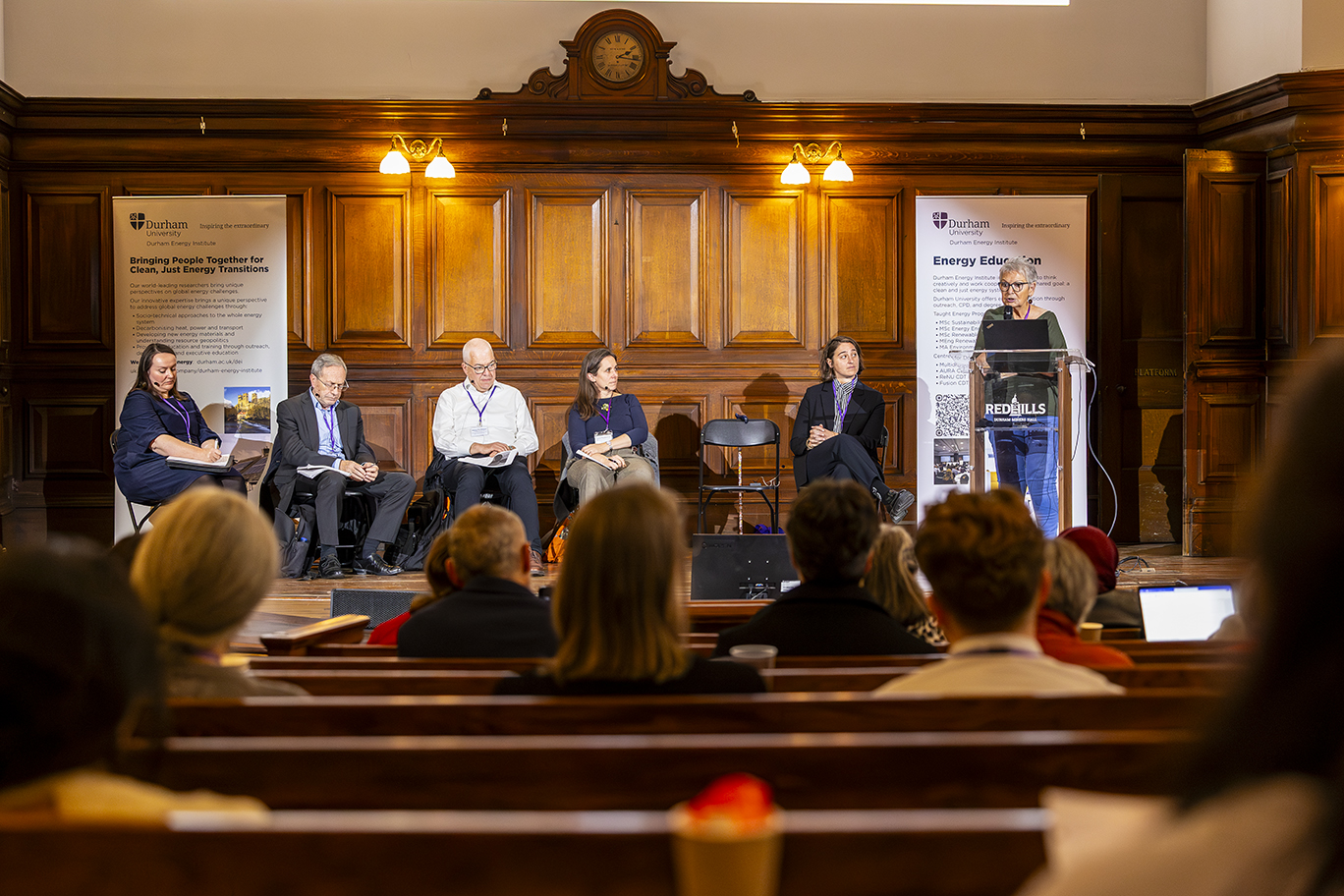North East's Green Leadership Showcased at Landmark Energy Days Conference

Durham, UK – Durham Energy Institute’s (DEI) Energy Days conference, held at the iconic Redhills Miners Hall, demonstrated the Institute’s pioneering approach to inclusive energy research. Bringing together community leaders, industry experts, policy-makers, artists, and academics, the event championed inclusive innovation and regeneration at the heart of the North East.
Celebrating Regional Strengths and Community Empowerment
Energy Day highlighted the historic role of the North East in powering Britain, and its exciting emerging role in a just and sustainable transition. Attendees saw pioneering local projects - such as using former mine workings for geothermal energy - and took part in workshops with leading North East authors, by local school pupils and by University researchers. The conference fostered civic participation through creative initiatives and sessions on tackling energy poverty and inequality, unified by a call to ensure no community is left behind.
“Redhills is not only a symbol of our heritage, but now a hub for trailblazing ideas to shape the UK’s energy future,” said Professor Joanna Berry, Co-Director for Entrepreneurship at DEI. “The collective expertise and creativity in our region have never been more vital.”
The event marked the launch of two groundbreaking events, Ancestral Reverb, led by Threads in the Ground, celebrated energy transformations across the generations of North East families; while a council of Durham residents gave a performance in anticipation of a ‘Durham Manifesto’ to be launched in April 2026.
Informing National Policy and Innovation
With keynote speakers including Chris Stark CBE, Head of the UK’s Mission for Clean Power, and Chris McDonald MP, Under Secretary of State at the Department for Energy Security and Net Zero, Energy Day provided critical insight at a turning point for UK energy policy. Experts addressed the necessity of rapid system change, increased consumer demand, and pioneering initiatives such as hydrogen innovation, offshore wind expansion, and minewater geothermal.
The conference reinforced the North East’s pivotal role in delivering decarbonisation and showcased DEI’s leadership in connecting research with policy, business and citizens, inspiring a holistic approach to sustainable industry and societal wellbeing.
Driving International Dialogue and Partnerships
Energy Day’s influence extended globally, with dialogue on just transition in climate law and cross-border cooperation. International case studies from European countries such as Germany and France emphasised the value of public education and participatory approaches, while partnerships with organisations such as the OECD and The Brookings Institution, represented by keynote speaker Dr Fiona Hill, laid the groundwork for enduring global collaborations.
“Regional voices and place-based expertise are essential for a fair, effective transition to clean energy. Our conference has shown the North East can offer both inspiration and practical models to the world,” commented the DEI Executive Director, Professor Simone Abram.
An Intergenerational and Inclusive Vision
A defining feature was the event’s multigenerational, interdisciplinary approach. Creative writing workshops, sessions for children, and assemblies for residents highlighted energy democracy as a collective endeavour. The venue itself - a living monument to labour history - underscored how heritage and innovation can jointly shape a greener, more inclusive future.
Photographs from the Conference
You can view all photographs from the conference here. Photo credit to Neil Terry Photography.


/prod01/prodbucket01/media/durham-university/research-/research-institutes/durham-energy-institute/landscapes-cityscapes-montages-etc/Walney-sunset-2000X800.jpg)